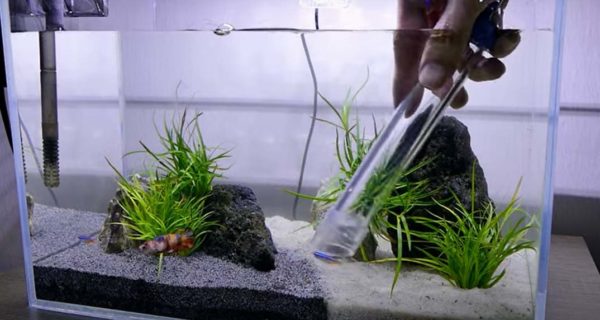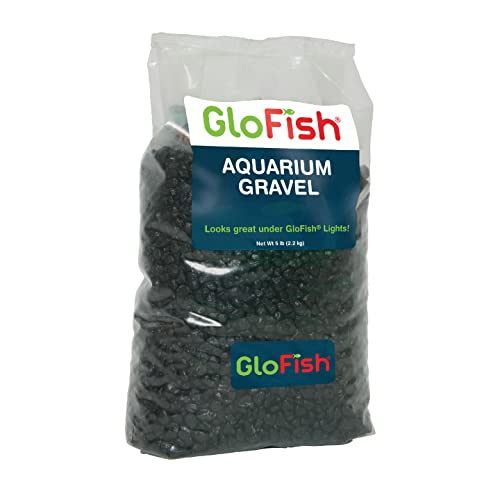Fishes, like any other living organism, create a lot of biological waste after eating. Unlike other species that move around, fish stay in the same tank with the waste products. This is one of the reasons for a frequent and timely water change.
The Nitrogen cycle in the betta fish tank is pretty extensive. Despite their size, a betta fish generates a lot of waste in the tank. This waste typically decomposes into ammonia and becomes toxic for the fish.
The timely cleaning of this waste reduces the toxicity and keeps the fish healthy. While most aquarists are afraid of the complicated steps, things are a lot easier.
Table of Contents
Why Should you Clean a Betta Fish tank?
Fishes, like any other living organism, create a lot of biological waste after eating. Unlike other species that move around, fish stay in the same tank with the waste products. This is one of the reasons for a frequent and timely water change.
The Nitrogen cycle in the betta fish tank is pretty extensive. Despite their size, a betta fish generates a lot of waste in the tank. This waste typically decomposes into ammonia and becomes toxic for the fish.
The timely cleaning of this waste reduces the toxicity and keeps the fish healthy. While most aquarists are afraid of the complicated steps, things are actually a lot easier.
List of Tools you will Need
When it comes to cleaning the betta fish tank, you need the right tools too. This streamlines the work and ensures that you don’t miss out on important cleaning needs.
Here’s a quick breakdown of some of the best tools you should have (along with a few purchase links).
1. GloFish Aquarium Gravel
2. SunGrow Betta Net
3. UEETEK Manual Waste Remover
4. API Hand Held Algae Pad
No products found.
5. GreenJoy Aquarium Fish Tank Cleaning Kit
6. House Naturals 2 Gallon Food Grade BPA Free Bucket
7. Seachem Prime Fresh and Saltwater Conditioner
How Often Should I Clean my Betta Fish Tank?
Now that you have a detailed understanding of the betta fish tank and how to manage things, cleaning is next on your list.
Be aware that the frequency of water change in the tank varies. Things will be different for a 5-gallon tank than a 20 gallon one.
Typically, the smaller the tank, the more you have to clean it. This is because the lack of space concentrates the toxins even more. So, if you don’t want to put the betta fish at risk, you need to keep the tank clean.
There are two scenarios you need to be mindful of:
- If you have a small tank, you need to change up to 50% of the water every week.
- If you have a larger tank (with a filter), change at least 20% of the water every week.
The only and sole reason behind the cleaning is to keep the ammonia and nitrate levels in check. The combination of biological waste with leftover food causes a rise in ammonia levels.
While the initial concentration is low, it soon skyrockets when you don’t clean it. So, if you want to extend the lifespan of your fish and keep their health, a water change is a must.
However, too much of anything is bad too. The same applies to the water changing of the tank too.
When changing the fish tank water, you need to be mindful of certain factors, including:
- Water hardness
- Water pH
- Water temperature
- Bacterial infestation
- Ammonia levels
- Biological agents
Only when the levels are too out of order should you consider changing the water. Changing the water too frequently (like every other day) will put the fish under stress. Despite having high adaptability, a betta needs some time to adjust. This minimum time frame is 1-2 weeks.
How Should I Clean my Betta Tank?
The frequency of water change depends on what and how much you feed your betta. The food is directly proportional to the waste they generate. So, if you are feeding more frequently, you need to keep a check on the water parameters too.
Keep in mind that the cleaning process is simple. All you need to do is have the right tools and follow the steps.
For your convenience, we have sorted out the steps below:
- Start by taking your clean white bucket and filling it up with tap water. This is the water you will treat and replace the tank water with. So, fill the bucket according to the capacity of your tank.
- Typically, you can’t directly put betta fish in the tap water. The chlorine level is too high for their liking. So, you need to treat the water with a good water conditioner to get rid of the excess chlorine.
- Once the new water is prepared and cleaned, the next focus is on cleaning the tank water. Depending on the amount you want to remove, use a fish siphon. This will clear a lot of the water out of the tank. In case you want to clean the tank, a gravel siphon works better. In case you don’t have a siphon, use your hands to clean the tank.
- The penultimate step is to reset the water parameters. You need to reintroduce the treated bucket water to fill up the tank. For this, check the water temperature and adjust it accordingly. Betta fish tanks should be between 75-80 degrees Fahrenheit. Heat the water in the bucket to meet the ideal temperature.
- Lastly, reintroduce the treated bucket water into the fish tank.
How to Keep the Betta Fish Tank Water Clean?

Not just changing the tank water, you need to keep the tank clean too. We have sorted out some of the important tips to be mindful of.
- Start with the feeding behavior. One of the worst things to do is overfeeding the betta fish. This leads to chronic health issues and a consistent rise in biological waste. If you are giving them human food, like veggies, be mindful of the portion.
- Treat the decoration pieces in the tank with care. Clean and disinfect them from time to time to prevent the rise in infections. This is the best way to prevent betta fish diseases.
- Besides the excess food in the bottom, you need to take care of rotten plants too. Typically, the remnants of the live plants can increase the bacteria levels in the tank.
- Also, while betta fish can stay without a filter, we’d recommend otherwise. Using a water filter in the tank is beneficial. It will keep the water clean, in case you don’t have the time for it.
It doesn’t matter what you do and where you are; keeping the fish tank clean is important. Betta fish is hardy and will thrive in poor water conditions but within a limit. There’s only so much they can sustain. So, make sure you keep a check and do the needful.
When will I know When to Clean the Betta Fish Tank?
We have been saying that you need to clean the betta fish tank. But, when is the right time? This is a question that many beginner aquarists have.
And, as disappointing it sounds, there is no standard answer. It depends on the setup of the fish tank.
However, you need to realize that the smaller the tank, the more frequent the cleaning is. Just ensure that you never house a betta fish less than 5 gallons capacity.
Besides the water, you also need to clean the tank. Scrape off the excess algae and the filter cartridges too. Any kind of deposition will leave to risks of infection. Also, make sure you manage the water chemistry in the tank.
If the ammonia levels are over 0 ppm, you need to consider cleaning the tank. Also, the nitrate level should be 20 ppm or less.
Should I remove the Betta Fish while Cleaning the Tank?
Another common issue that people have is with transferring the betta fish from the original tank.
And, to answer you, we’d recommend not to. Betta fish need time to adapt and adjust to new water settings. So, consistent changing will result in stress. The frequent changes will also shock their system, killing them in the process.
So, if you aren’t putting them in the quarantine tank, don’t remove them. You want the cleaning process to be as non-intrusive as possible. So, start with small water changes and keep the fish in the tank only.
Wrapping Up
With that, we hope you have all the insights for cleaning a betta fish tank. Just ensure that you follow the steps we have mentioned along. The last thing you want is to do something wrong and end up killing the fish in the process.
All these tips should be useful for beginner aquarists. We understand that keeping a pet is a huge responsibility. So, being mindful of things can make your life a lot easier.
No related posts.





